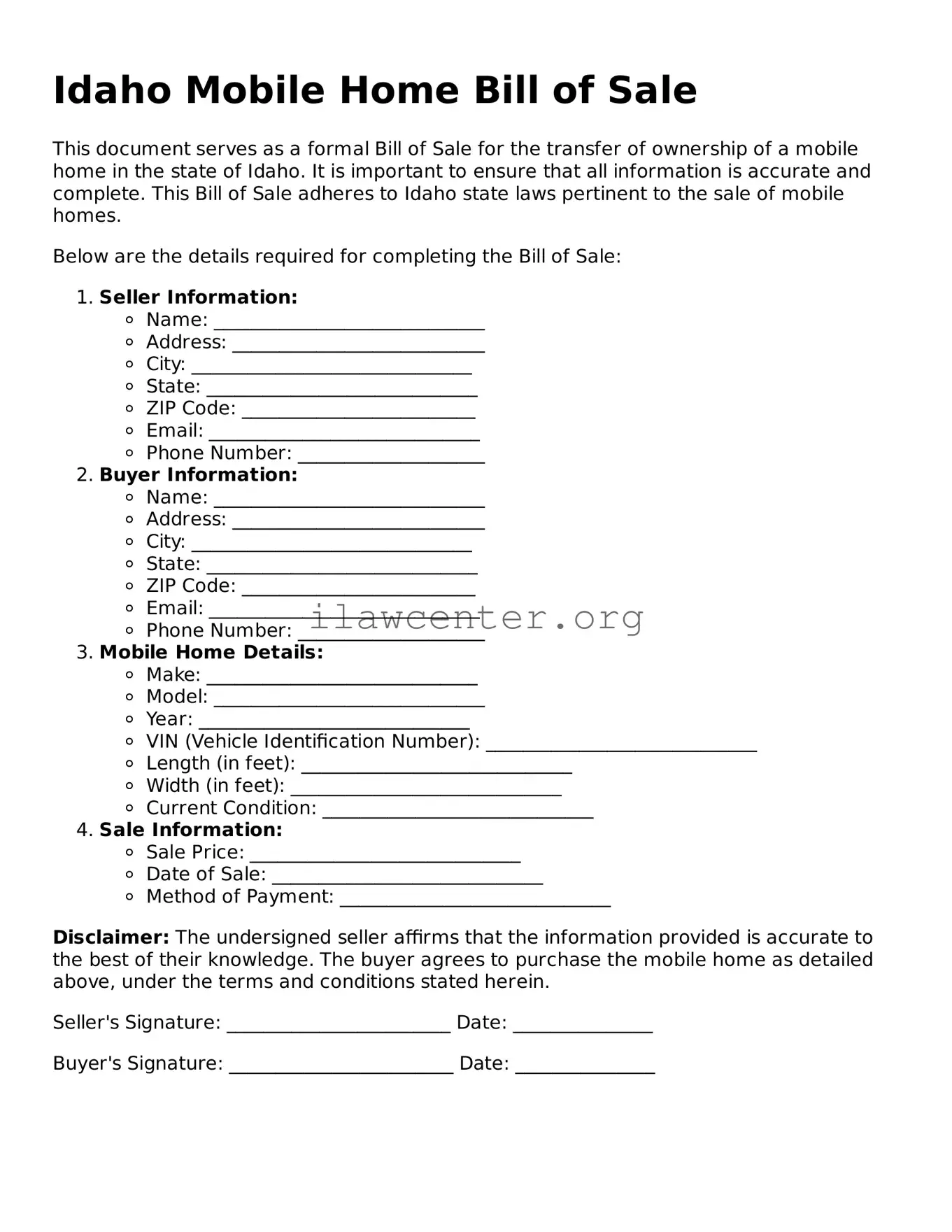What is the Idaho Mobile Home Bill of Sale form?
The Idaho Mobile Home Bill of Sale form is a document used to transfer ownership of a mobile home from one party to another. This form provides essential details about the transaction, including the names of the buyer and seller, the mobile home’s description, and the sale price. It serves as proof of the transaction and supports the buyer’s claim to ownership in the future.
Why is the Mobile Home Bill of Sale important?
This form is important because it legally documents the transfer of ownership. Without it, the buyer may encounter difficulties when trying to register the mobile home or sell it in the future. It records the transaction, protecting both parties by clarifying their rights and responsibilities. Additionally, it may be required for obtaining financing or insurance for the mobile home.
How do I fill out the Idaho Mobile Home Bill of Sale form?
Filling out the form involves several key steps. First, include the name and address of both the buyer and seller. Next, provide a detailed description of the mobile home, including its make, model, year, and vehicle identification number (VIN). Don't forget to state the sale price and any payment terms. Lastly, both parties should sign and date the form to validate the agreement.
Do I need any additional documents when completing the Bill of Sale?
Yes, it can be helpful to have additional documents ready. These might include the mobile home’s title, any warranties, maintenance records, and documentation of the sale price. Having these documents on hand can help clarify terms and facilitate a smoother transaction.
Is the Bill of Sale the same as the title transfer?
No, the Bill of Sale is not the same as a title transfer. While the Bill of Sale demonstrates that a sale has occurred and outlines the terms of that sale, the title transfer officially changes ownership records with the state. Typically, the seller must sign over the title to the mobile home, which may require additional steps through the Idaho Department of Motor Vehicles (DMV).
Can the Bill of Sale be used for legal purposes?
Yes, the Bill of Sale can serve legal purposes. It acts as evidence of ownership and the conditions of the sale. In case disputes arise relating to the transaction, having a properly filled-out Bill of Sale can offer protection and support your claims in legal proceedings.
What should I do after completing the Bill of Sale?
After completing the Bill of Sale, make sure both parties retain a signed copy for their records. The seller should also provide the buyer with the mobile home title, and the buyer should take the necessary steps to register the mobile home with the state. This ensures that ownership is officially recognized and helps avoid potential complications down the line.
